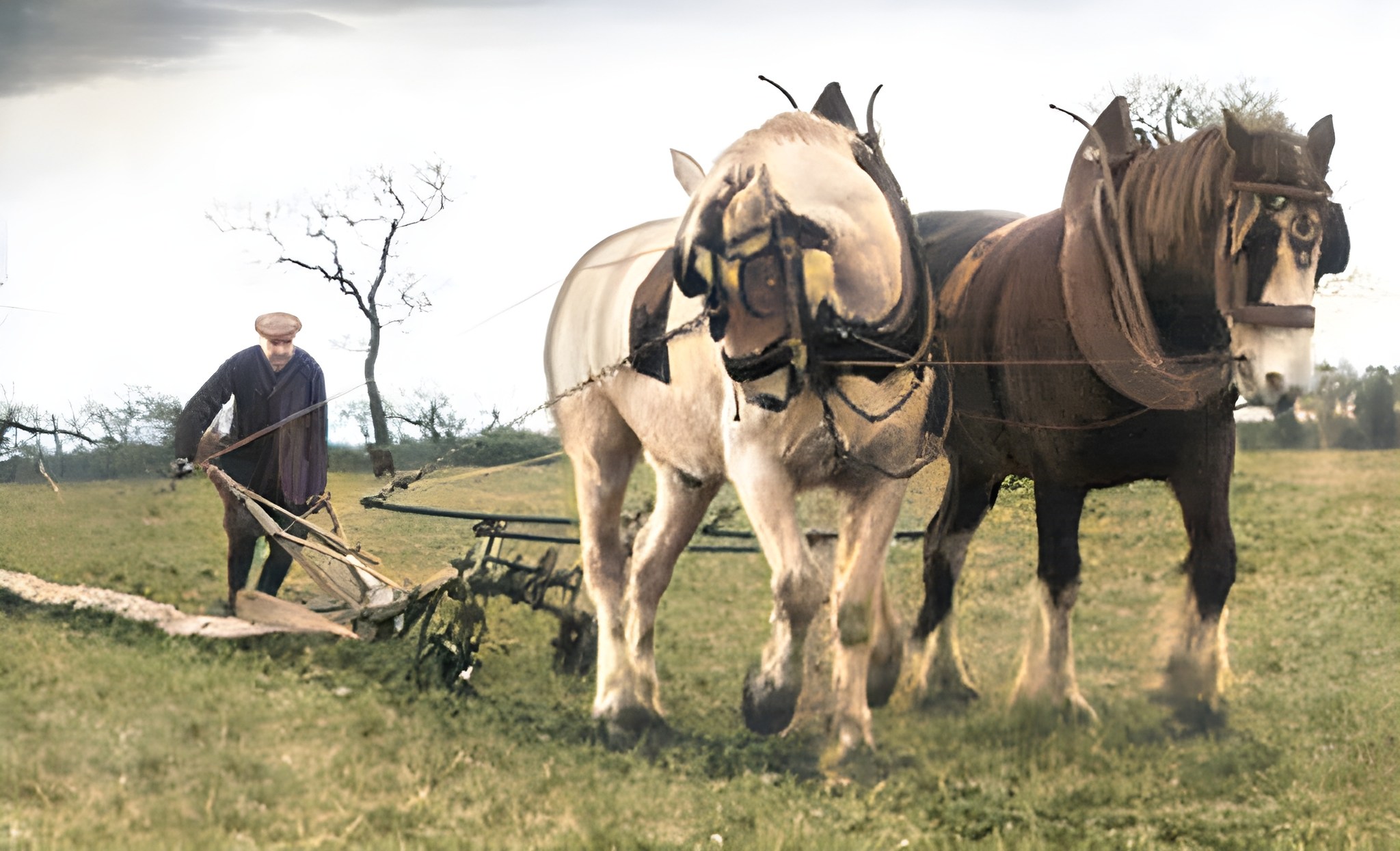 >
>
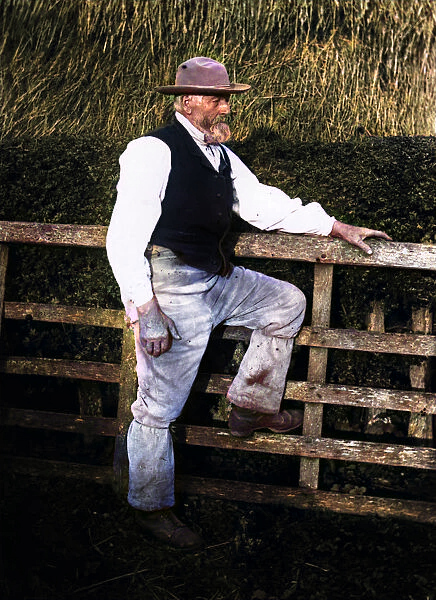 >
>
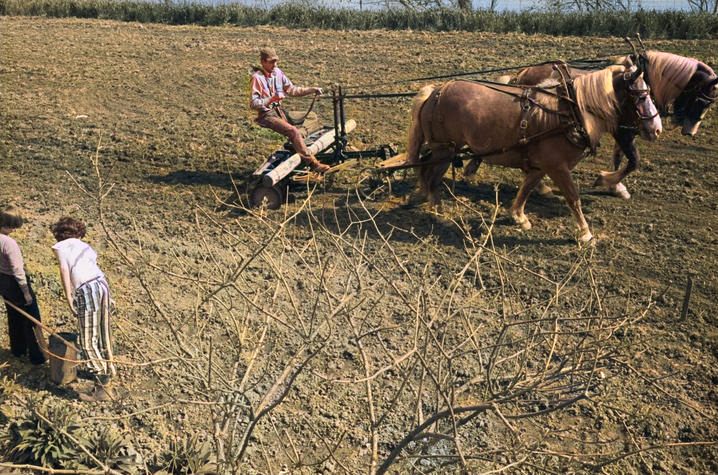 >
>
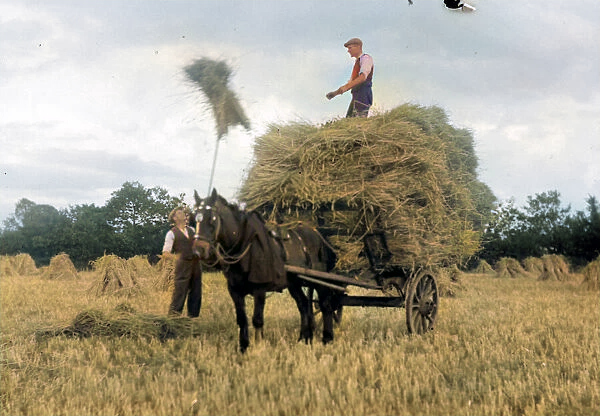 >
>
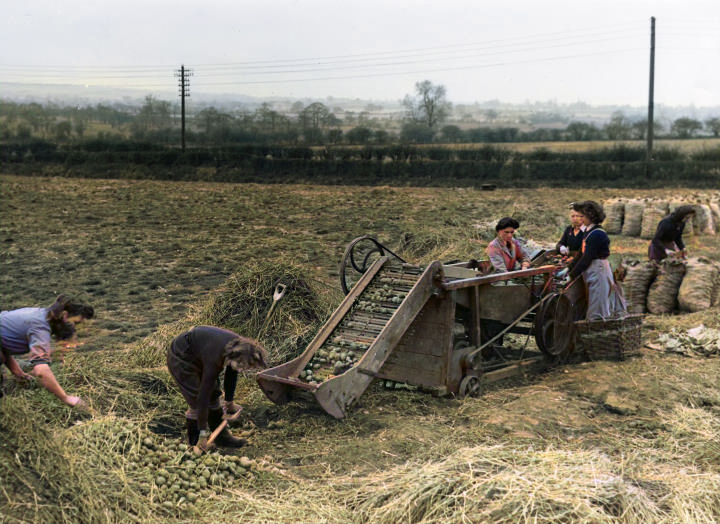 >
>
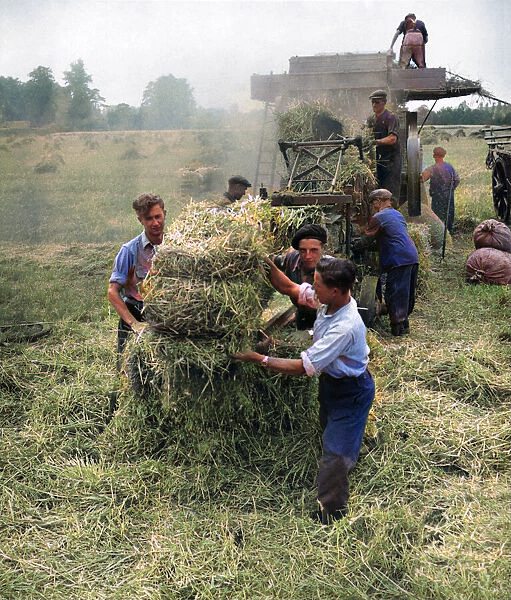 >
>
Muck, Milk & Muscle: A Day on the 1905 Furness Farm The rooster's shrill crow pierced the pre-dawn chill, rousing the farmhand from his slumber. He shivered, pulling on layers of worn clothing – a rough wool shirt, patched trousers held up by braces, and thick socks to ward off the damp. The scent of woodsmoke lingered from last night's fire. Breakfast was a steaming bowl of porridge, perhaps with a sprinkle of salt or a dollop of treacle, and a hunk of bread – simple fare to fuel a long day's work. Outside, the farmyard was already bustling. The farmer, his weathered face etched with the lines of a life lived outdoors, barked orders to his sons. The clatter of milk pails, the lowing of cows, the excited clucking of hens, and the squealing of piglets all mingled in the crisp morning air. The first task of the day was milking. The farmer's wife, with her practised hands, led the way, her daughters close behind. Even the youngest, barely more than toddlers, helped, their small hands awkwardly tugging at the cows' teats. With the milking done, the day unfolded according to the season and the needs of the farm: Ploughing: The heavy horses, Clydesdales or Shires, strained against their harnesses as they pulled the plough, guided by the farmer or one of his older sons. The rich, dark soil of Furness, perhaps a heavy clay or loam, turned over in neat furrows, ready for planting. Oats, barley, and wheat were staple crops, destined for both human and animal consumption. Potatoes, with their green leaves promising a bountiful harvest come autumn, were planted alongside rows of turnips and swedes, essential for winter sustenance. Sowing: Seeds, carefully saved from the previous year's harvest, were sown by hand, scattered across the prepared soil. Children scampered through the fields, mimicking their elders, their laughter echoing across the land. Weeding: Backbreaking and tedious, weeding was often the domain of the women and children. They crouched low, their fingers nimbly plucking out the unwanted invaders that threatened to choke the crops. Haymaking: When the summer sun shone, the meadows were alive with activity. The rhythmic swish of scythes cut down the tall grasses. The hay was then raked and turned, drying under the summer sun before being gathered into haystacks or carted to the barn for winter fodder. Potato Harvest: Once the potatoes were dug up, the family moved onto the next task. Out in the field, with baskets and buckets at the ready, they settled amongst the furrows. Children, with their nimble fingers and sharp eyes, were particularly adept at this job, sifting through the freshly unearthed potatoes, separating them from clods of earth and stones. It was a dusty, backbreaking job, but essential to ensure a clean and usable harvest. As dusk settled, the farm animals were settled for the night. Cows were brought into the byre, sheep into the fold, and pigs into their sty. The horses, their powerful muscles weary from the day's work, were groomed and fed. In the farmhouse kitchen, the farmer's wife prepared a simple but hearty meal – perhaps a stew of mutton or rabbit, accompanied by a generous helping of boiled potatoes and freshly baked bread. Tired bodies gathered around the fire, its warmth chasing away the evening chill. Stories were shared, songs were sung, and the day's labours were recounted. Finally, with weary limbs and full bellies, the farm family retired to bed, ready to face another day on their Furness farm. Life in 1905 was a constant cycle of work, dictated by the seasons and the needs of the land. It was a hard life, demanding and unforgiving, but it was also a life of deep connection to the natural world, of self-sufficiency, and of quiet satisfaction in the fruits of one's labour. #BritishFarming #historyharvest